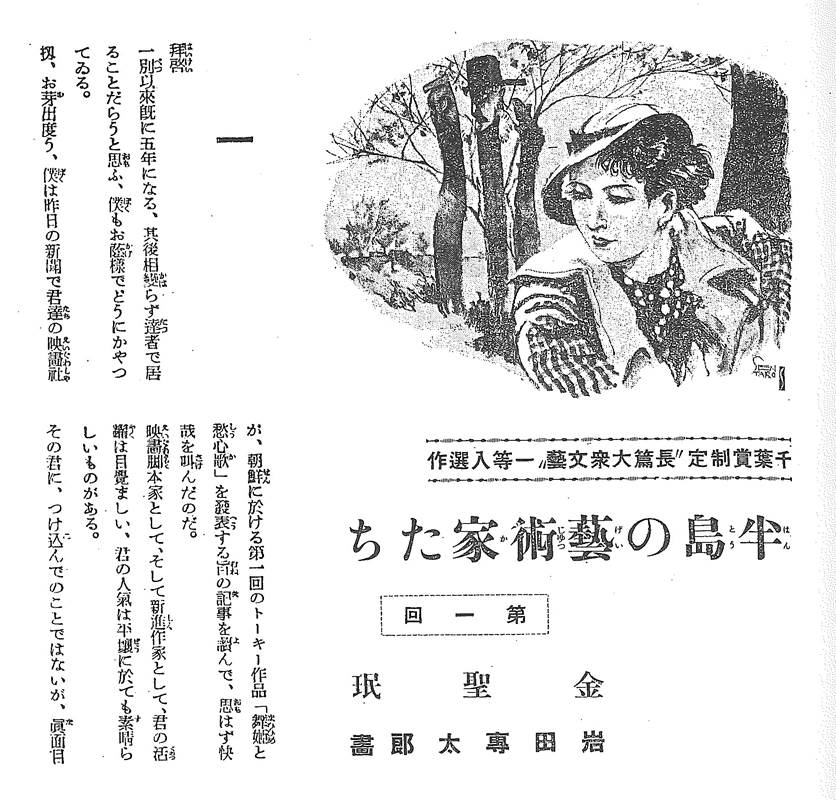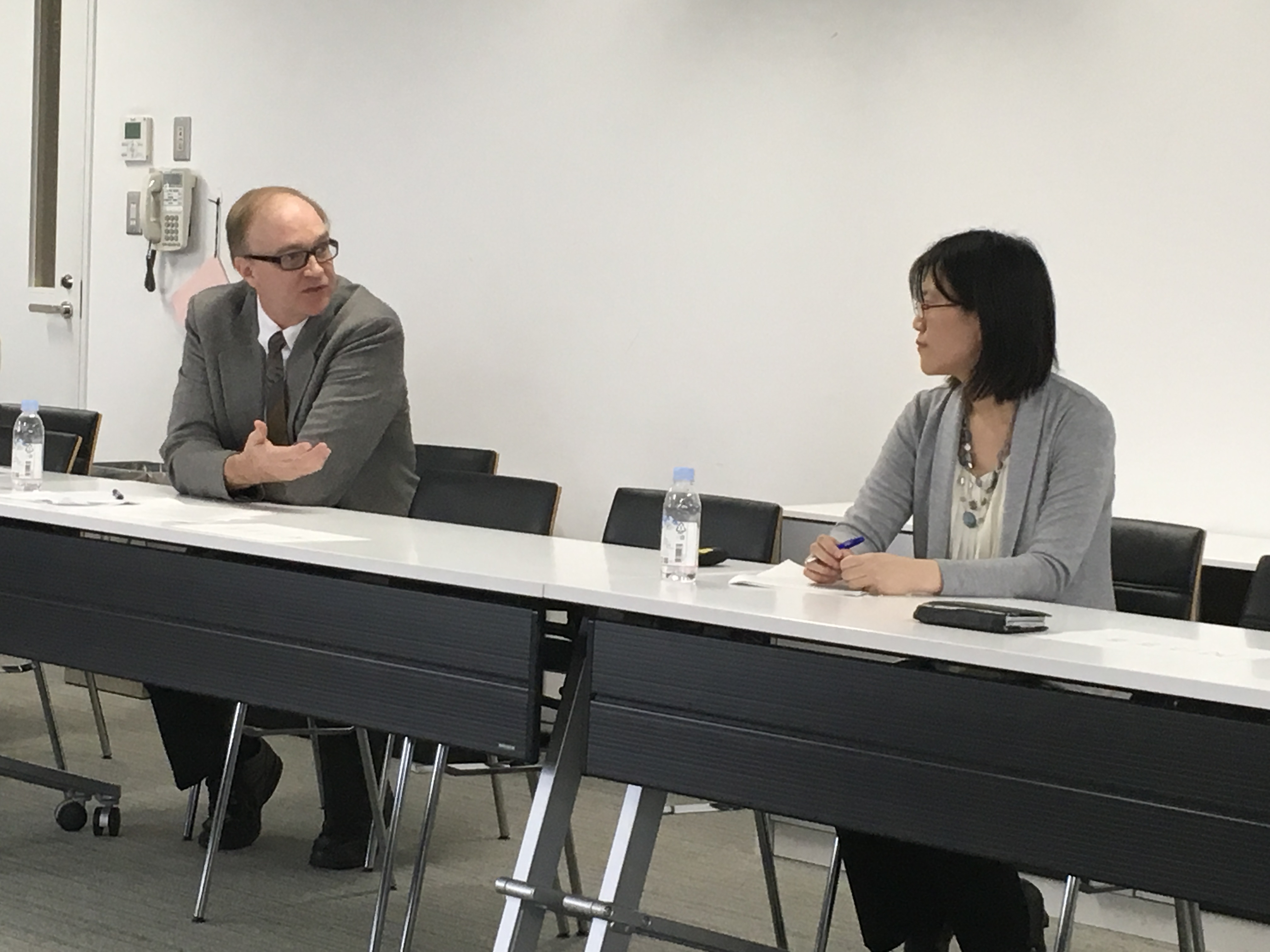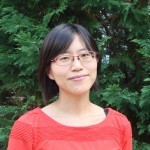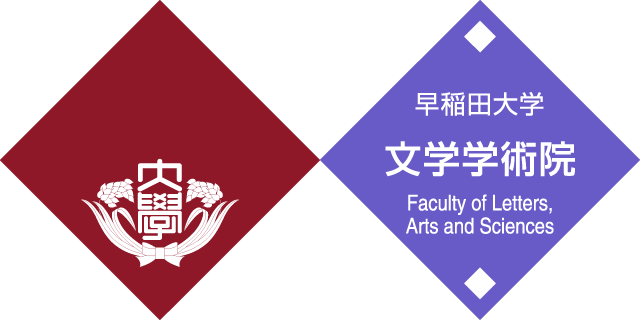- News
- 【TGU Global Japanese Studies】Assistant Professor Christina Yi from the University of British Columbia gives a presentation on linguistic imperialism
【TGU Global Japanese Studies】Assistant Professor Christina Yi from the University of British Columbia gives a presentation on linguistic imperialism

- Posted
- Wed, 26 Oct 2016
Assistant Professor Christina Yi from the University of British Columbia gave a presentation titled “Linguistic Imperialism and the Aporia of Silence in ‘Artist of the Peninsula’ and ‘Spring on the Peninsula’” at Waseda’s Toyama Campus on October 13.

Abstract of the presentation
With the launch of the Second Sino-Japanese War in 1937, Japan’s colonies saw the full-scale launch of kōminka (imperialization) policies designed to turn the colonized into loyal subjects of the emperor. This presentation explores the central role kokugo (national language) ideology played in the articulation and promotion of imperial identity during the latter years of Japan’s colonial rule, exploring how and why “Korean” literature was repositioned within a larger Japanese language canon. Although it is often understood that the kōminka movement introduced a new paradigm of the “imperial subject,” who might be included in this category varied according to class, gender, ethnicity, and place. This presentation will elaborate on this point through a close comparative analysis of Kim Sŏngmin’s 1936 novella “Hantō no geijutsukatachi (Artists of the Peninsula)” and its 1941 film adaptation “Hantō no haru (Spring on the Peninsula; dir. Yi Pyŏng-il).”
Assistant Professor Yi argued at the end of her presentation that, “Kokugo ideology did not subsume their diverse and divergent voices so much as expel the very idea of divergence, leaving those with alternative visions of belonging to paradoxically voice their views through silence.”
Professor Michael Bourdaghs from the University of Chicago, who was invited to the presentation as a commentator, said, “Christina gave such a rich insight as she went through the presentation in a really interesting fashion to show us how Korean writers and filmmakers have responded to the kōminka policies and tried to look for wiggle room. I think what Christina’s presentation reminds us is that nationalism is not a coherent ideology but rather a fluid assemblage of often contradictory tendencies of assimilation and exclusion. Kōminka always defers the answer to the question of what is Japanese identity and what does it mean to belong to Japan. The function of nationalism is not to answer the question, because if you answer the question, the game is over. The function is to keep putting off the answer to the question. In the Japanese kokugo studies, or the national language studies, we see this same tendency.”

Questions from Professor Bourdaghs followed his comments, and the two professors engaged in further discussion. Afterwards, the audience had the opportunity to ask Assistant Professor Yi questions. The presentation ended with closing remarks by Professor Sungsi Lee, the director of the Ryusaku Tsunoda Center of Japanese Culture.
About the speaker
 Christina Yi is Assistant Professor of Modern Japanese Literature at the University of British Columbia. She received her Ph.D. in Modern Japanese Literature from Columbia University. Her research focuses on the rise of Japanese-language literature by Korean colonial subjects during the 1930s and 1940s and its subsequent impact on discourse regarding “national” and “ethnic minority” literature in postwar Japan and Korea. She is currently working on a book manuscript that investigates how linguistic nationalism and national identity intersect in the formation of modern literary canons in East Asia.
Christina Yi is Assistant Professor of Modern Japanese Literature at the University of British Columbia. She received her Ph.D. in Modern Japanese Literature from Columbia University. Her research focuses on the rise of Japanese-language literature by Korean colonial subjects during the 1930s and 1940s and its subsequent impact on discourse regarding “national” and “ethnic minority” literature in postwar Japan and Korea. She is currently working on a book manuscript that investigates how linguistic nationalism and national identity intersect in the formation of modern literary canons in East Asia.
Event information
Moderated by Hitomi Yoshio (Associate Professor, Waseda University) and Kaori Shiono (Assistant Professor, Waseda University)
Comments by Michael Bourdaghs (Professor, University of Chicago)
Closing remarks by Sungsi Lee (Professor, Waseda University)
Organized by Hirokazu Toeda (Professor, Waseda University)
Sponsored by:
Top Global Unversity Project, Global Japanese Studies
Research Institute for Letters, Arts, and Sciences
Ryusaku Tsunoda Center of Japanese Culture
- Tags
- Events
